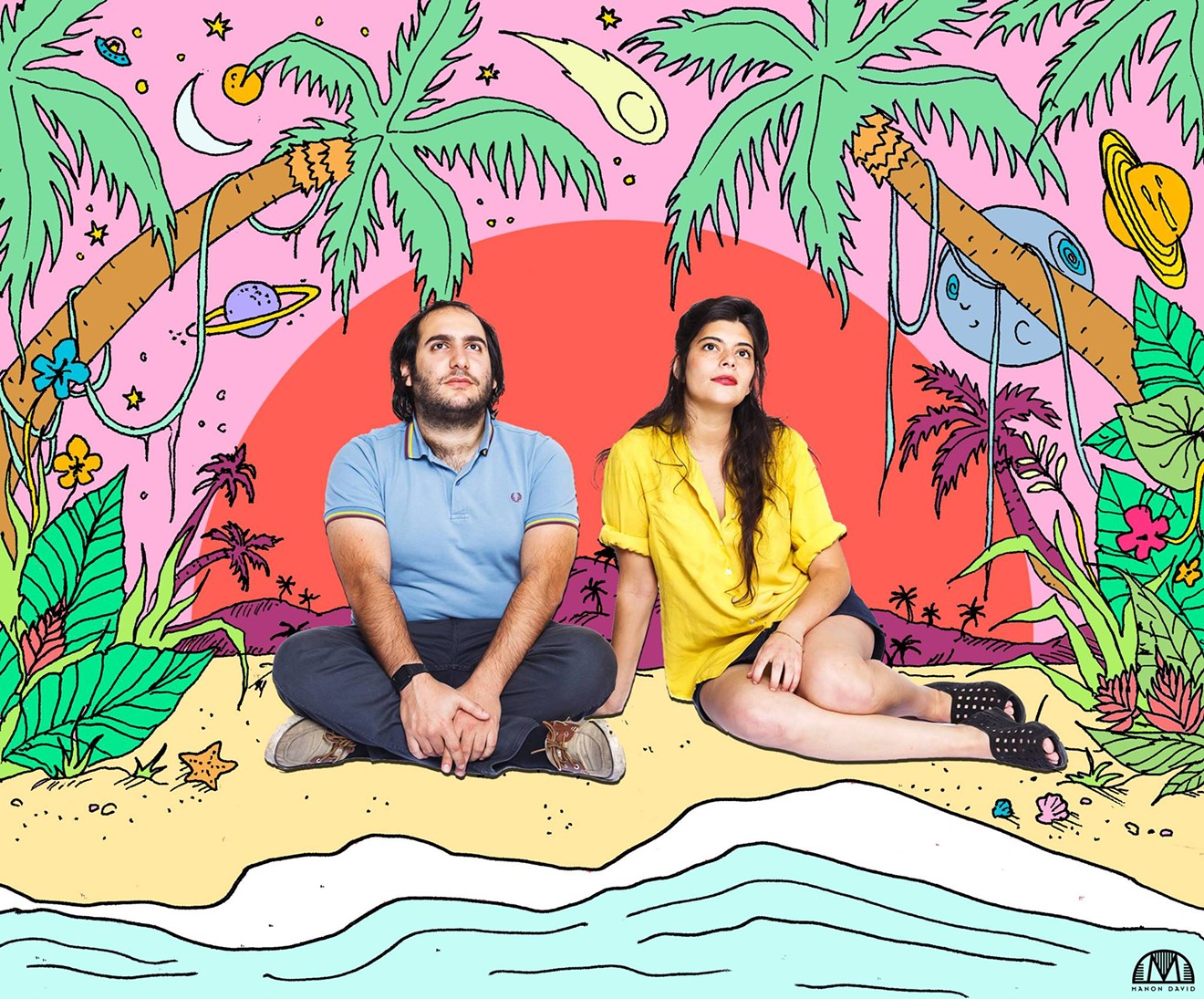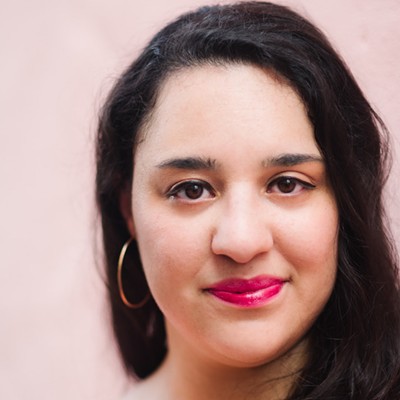Indie retro-pop duo Juliette Davis and Joachim Polack, known as Pearl & the Oysters, began making music together as university students studying musicology in Paris. The French capital has long been romanticized as an artists' mecca, but Davis dreamed of moving stateside to create music in another historic artists' haven: New York City. But when Polack was accepted to the University of Florida to pursue graduate studies, Davis followed, and the two found themselves in a Central Florida college town of 130,000 people instead of the fast-paced, densely populated city that never sleeps.
Before the pair set foot stateside, they did extensive research on the music scene of the city they'd soon call home. They connected with Elestial Sound, a Gainesville-based artist cooperative whose work ranges from releasing music to building installations and stages for the artists they support. Elestial Sound released the initial pressing of Hundred Waters' debut album before they signed with Skrillex's Owsla record label, and they've built sets for the band's experimental Form Arcosanti festival, which last year boasted Solange, Father John Misty, and James Blake as performers.
Davis and Polack felt Pearl & the Oysters could carve out a space for themselves in that hospitable creative environment, and they began creating a blend of harmonic, DIY indie pop accented by chiptune sounds. "People were really excited, because there is a lot of music in Gainesville, but not much pop music," Davis says. "We're realizing that there was a big demand for that here."
Polack says the band's unconventional musical approach stems from a rejection of self-imposed genre purity coupled with an interest in '50s and '60s proto-synth novelty records. "I really like chiptune and 8-bit music, but I also feel like I can never listen to a whole album of that... I think that there's a lot of orthodoxy when you start a project, like, 'My band's going to be a garage punk band and we're going to play garage punk, or we're going to play chiptune music and only [use] 8-bit sounds.' It creates this sense of identity and of scene, and it's full of markers of what the genre is or what the style is... but we like very different music. When people think of electronic music today, they think 'computer-based' or they think it's playing music with sequencers... I think that there's not a lot of bands that are referencing old electronic music before EDM or before electronica."
Pearl & the Oysters will kick off this year's Okeechobee Music & Arts Festival with a Thursday-afternoon set. The pair feel that their inclusion on the lineup is further validation that they have been welcomed into the Florida music community at large. "The first thing that hit us," Davis says about Florida's musicians, "is the freeness of people... Living in Paris in a small apartment, we didn't have this natural relationship with music. We had to pay for rental spaces, and it wasn't the same. It's very liberating to play here, because you can meet with people and sit on the porch and have wonderful conversations and then go to the music room and play for hours. It's so natural."
Pearl & the Oysters. 4 p.m. Thursday, March 1, at Okeechobee Music & Arts Festival, 12517 NE 91st Ave., Okeechobee; okeechobeefest.com. Tickets are $299 to $4,500 via eventbrite.com.
[
{
"name": "Air - MediumRectangle - Inline Content - Mobile Display Size",
"component": "19274298",
"insertPoint": "2",
"requiredCountToDisplay": "2"
},{
"name": "Editor Picks",
"component": "17482312",
"insertPoint": "4",
"requiredCountToDisplay": "1"
},{
"name": "Inline Links",
"component": "18711090",
"insertPoint": "8th",
"startingPoint": 8,
"requiredCountToDisplay": "7",
"maxInsertions": 25
},{
"name": "Air - MediumRectangle - Combo - Inline Content",
"component": "17482310",
"insertPoint": "8th",
"startingPoint": 8,
"requiredCountToDisplay": "7",
"maxInsertions": 25
},{
"name": "Inline Links",
"component": "18711090",
"insertPoint": "8th",
"startingPoint": 12,
"requiredCountToDisplay": "11",
"maxInsertions": 25
},{
"name": "Air - Leaderboard Tower - Combo - Inline Content",
"component": "17482313",
"insertPoint": "8th",
"startingPoint": 12,
"requiredCountToDisplay": "11",
"maxInsertions": 25
}
]












